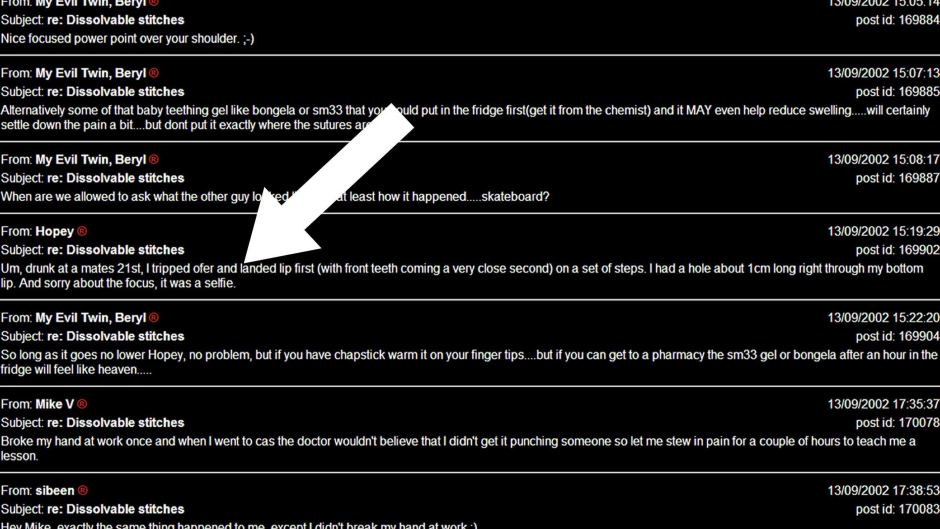According to the "blog.oxforddictionaries.com" the word of the year 2013 was selfie. It took more than a decade to this neologism to enter the Oxford Dictionary. Its origin in fact dates back at least to 2002:,
Research shows the word selfie in use by 2002. The earliest known usage is found in an Australian online forum post:
- 2002 ABC Online (forum posting) 13 Sept. *“Um, drunk at a mates 21st, I tripped ofer [sic] and landed lip first (with front teeth coming a very close second) on a set of steps. I had a hole about 1cm long right through my bottom lip. And sorry about the focus, it was a selfie.”
Its origin appears to be closely connected to the Australian tendency to use the suffix -ie as explained in the following piece:
It makes sense, to etymologists, that selfie may have originated in Australia, where –ie has long been a suffix in slangy nicknames: barbie for barbecue, mozzie for mosquito, tinnie for a can of beer, even Aussie for Australian. In fact, this nickname-like vocabulary has a technical descriptor, ‘hypocoristics’, which stems from the Greek hypokorizesthai meaning “to use child-talk”.
However, in a rather anti-climactic interview with Australian Broadcasting Corporation, Hopey – there we go again, hypocoristics –went on to claim that selfie was common slang at the time, used to describe a picture of yourself. It is thus very likely that there was no single moment when the word was ‘created’ and that it travelled orally around the Australian continent before Hopey left his message online.
Whatever the truth behind his morphological moment in the spotlight, though, one fact remains a fair bet: that the Australian tendency towards hypocorism is the real hero of the story.
(www.oxbridgeediting.co.uk)
The suffix -ie a variant of -y is defined as:
- a noun-forming suffix with a variety of functions in contemporary English, added to monosyllabic bases to create words that are almost always informal. Its origin appears to be a from informal Scottish usage.
Dictionary.com
Questions:
Is hypocorism, among English dialects, mainly an Australian usage?
Is there any evidence that selfie may have a different regional origin?

